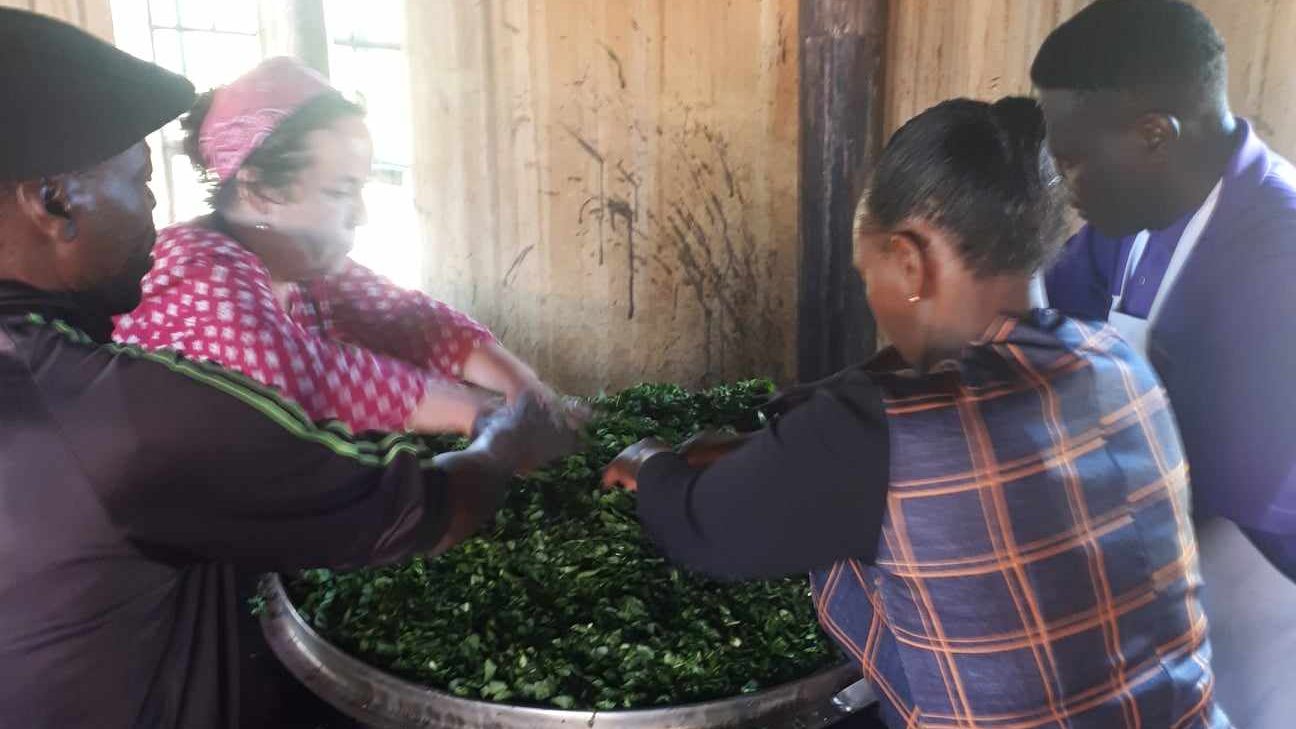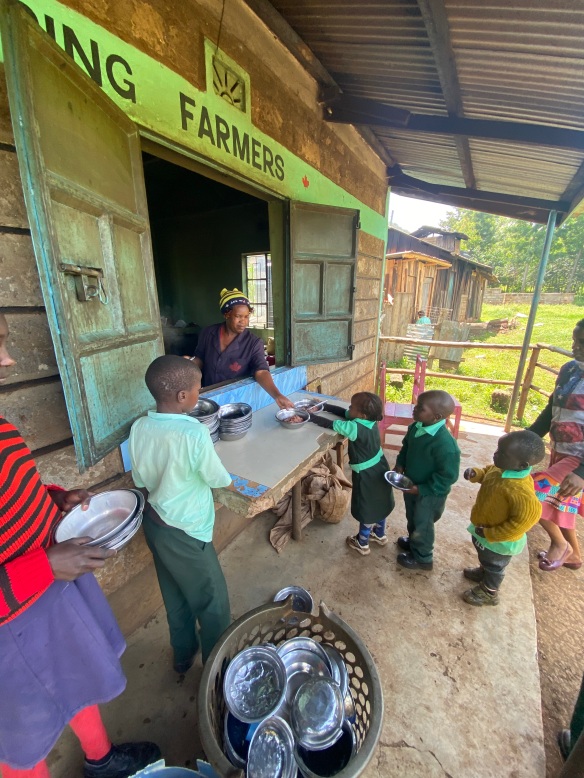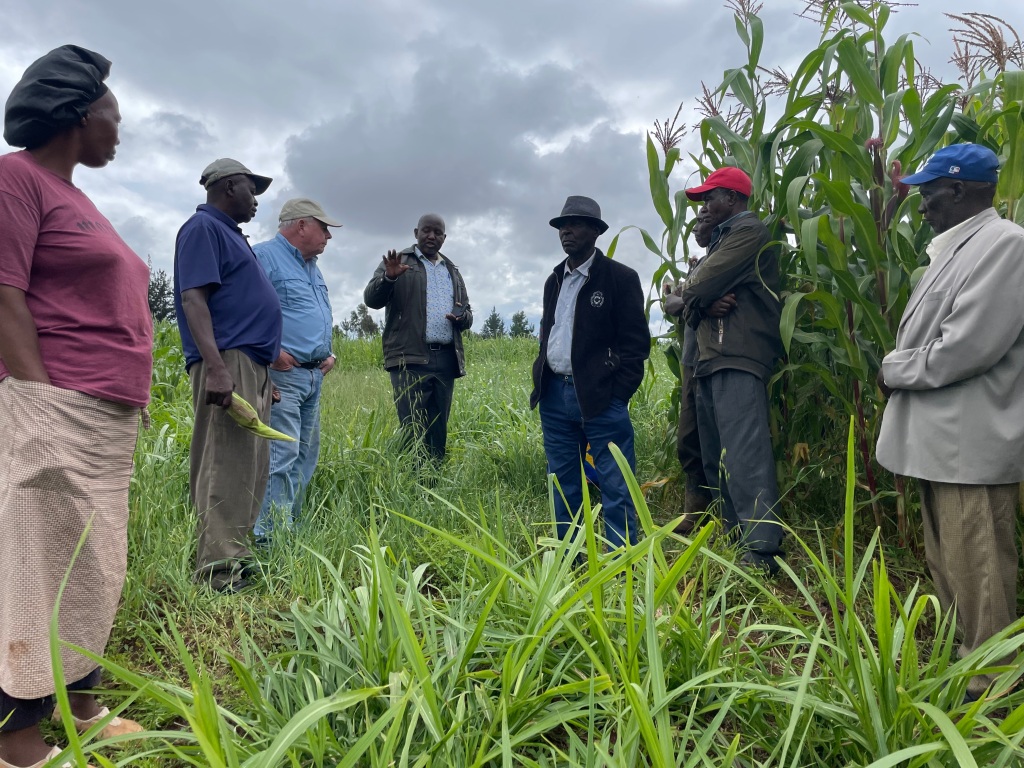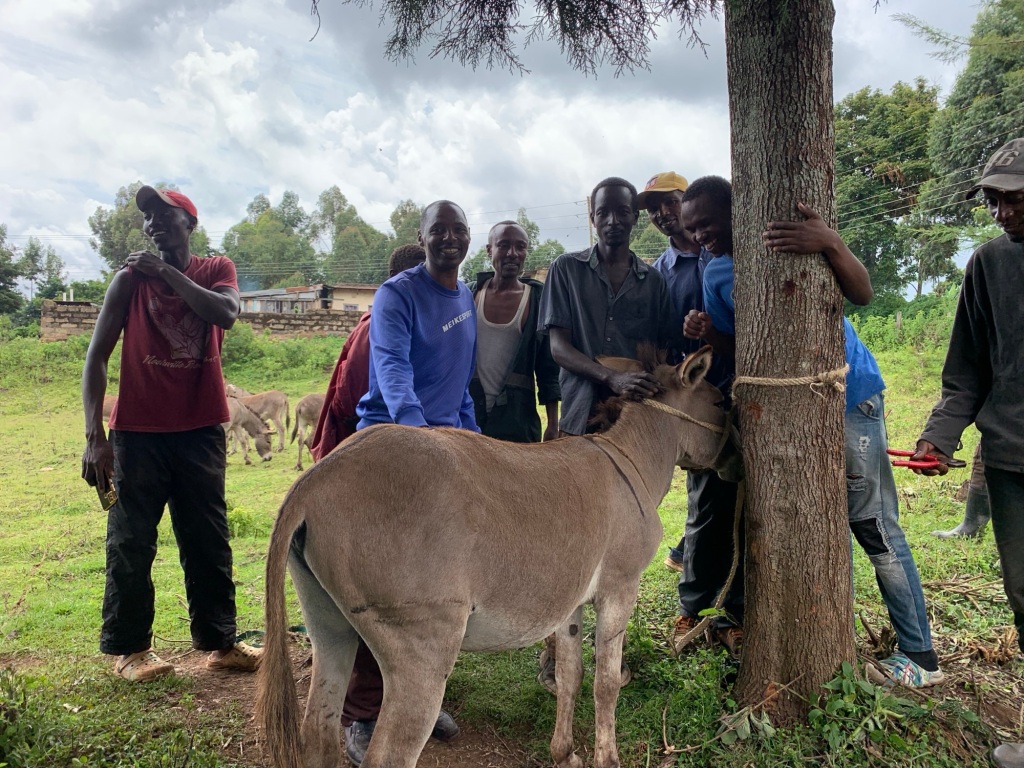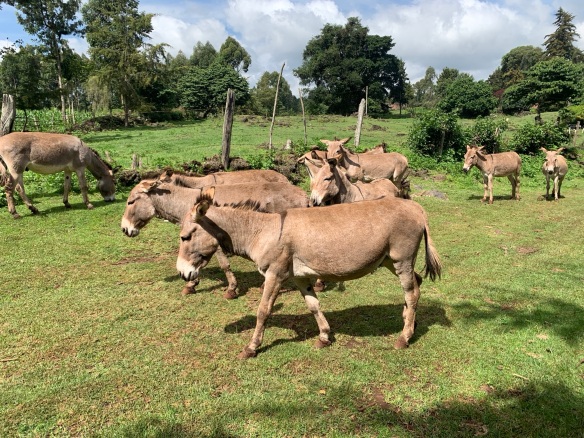By: Kaitlin Coles, Kaitlyn Ledgerwood, Meghan Martell, with Dr. John VanLeeuwen from the Atlantic Veterinary College

Jambo! After numerous delays, we have arrived in Kenya! This past week has been spent immersing ourselves in Kenyan culture, working with local farmers, and learning lots along the way.

Vet students with Dr. John
Our first stop on the way to Meru was the Wakulima Dairy in Mukurwe-ini. This business is now thriving with the help of Farmers Helping Farmers (FHF) and the University of Prince Edward Island. Over 25 years ago, Wakulima Dairy collected less than 5,000L of milk per day, and are now collecting over 70,000L. They continue to provide income and jobs for the community.
We started off strong by giving a seminar on a farm to a newly-formed club of dairy farmers belonging to the Buuri Dairy Group. We discussed how important nutrition, health, and cow comfort are for happy cows and good milk production. Many eager farmers showed up wanting to learn and ask questions. The club then went to where a cow and heifer were housed on the farm, and demonstrated on those animals the application of the information provided. At the end of the day, FHF Dairy handbooks were handed out to further guide farmers and provide additional information.

The following day, we visited farms with Stephen Chandi, an animal health employee of FHF, and a local veterinary technician, Henry Mutea of the Naari Dairy Group, to check and treat cows that farmers were concerned about. It gave us the chance to see the difference in Kenyan farms versus Canadian farms, as well as educate farmers, Stephen and Henry on how to treat certain disease and how to improve cow comfort and welfare.
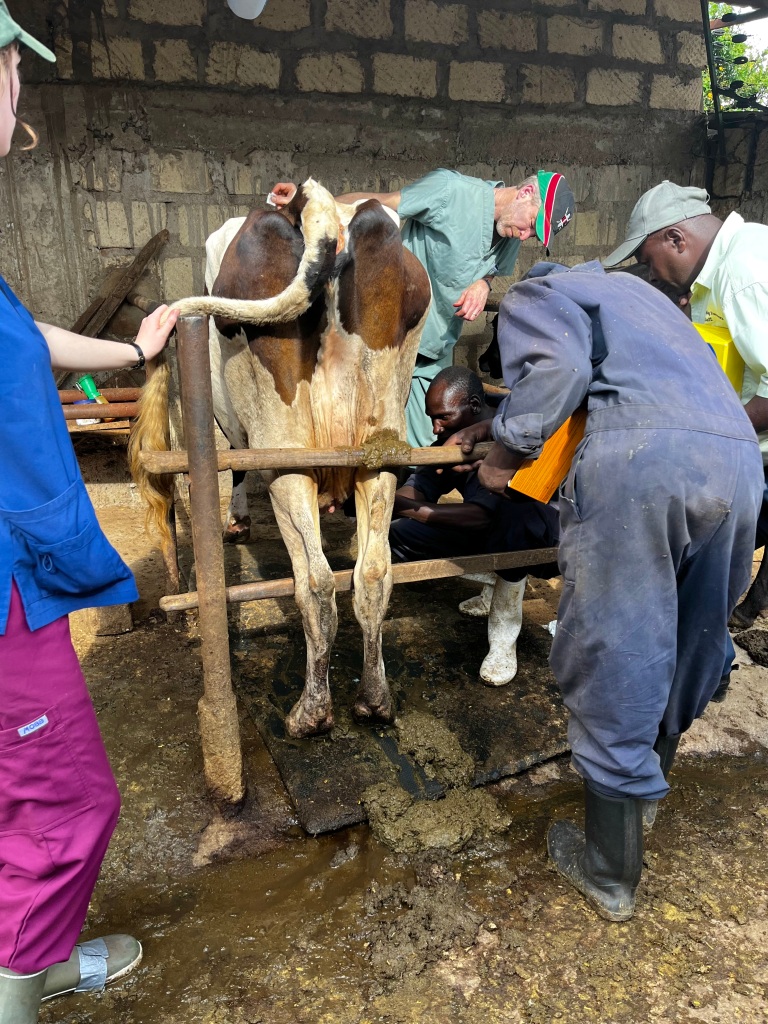
Not only does FHF run the Dairy Project, but they also provide Horticulture, Donkey, Poultry, and Nutrition projects. We spent a day with Dr. Victoria Bowes, a veterinarian from British Columbia who specializes in poultry, educating a woman’s group on the principles of raising chickens. We saw first-hand how effective the FHF Poultry Project is, when we visited farms belonging to women who have been guided by them in the past. Their coops had been much improved to support flock health and good egg production.

A big part of the Dairy Project is holding walk-in clinic days for cattle in different areas. This week in Mbaaria, over 400 cows, bulls, heifers, and calves were dewormed and treated by the dairy health team, and a few dogs and goats got in on the action too! We were lucky to have two final year vet students from Nairobi University to help out during this busy day. The day ended with a cow with a uterine torsion coming to the walk-in clinic – Dr. John encouraged all the animal health team to put the arm into the cow’s vagina up to their shoulder to feel the torsion so they would recognize it in the future and know how to treat it. A long, tiring but rewarding day was ended with sharing a cup of tea, celebrating a good day at the clinic!
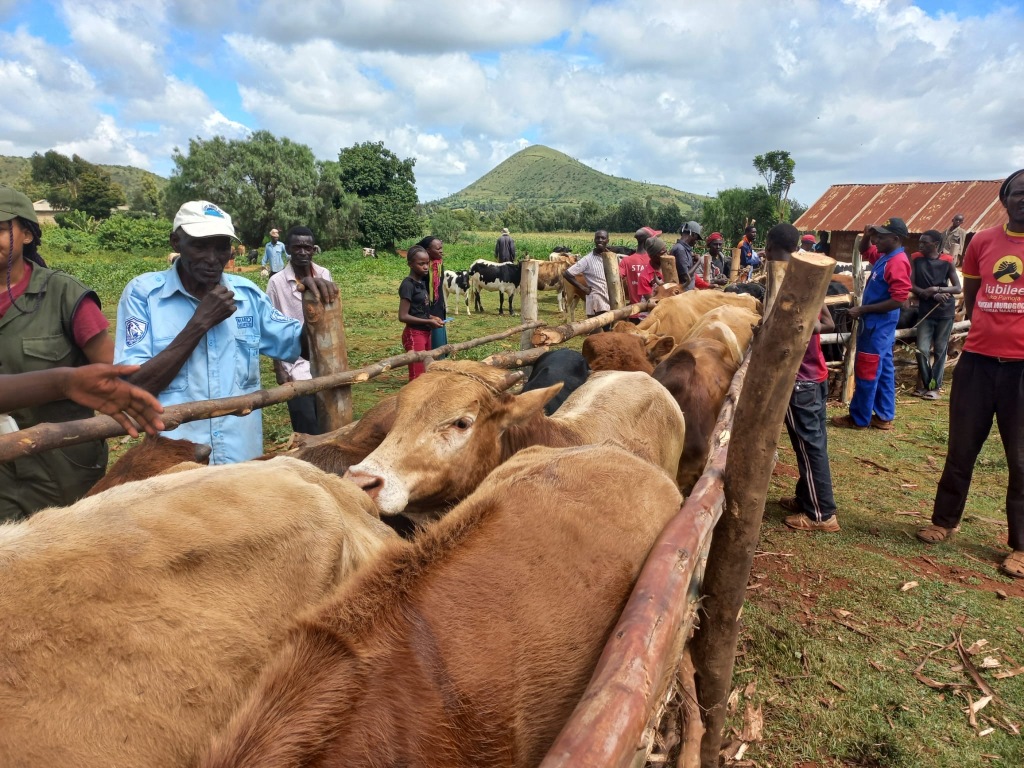
We ended our busy first week at a FHF party, which included Kenyan and Canadian staff/volunteers, along with 3 members from each FHF partner group (dairy groups, women’s groups, and schools). The day included singing, dancing, good food, and meeting lots of incredible people!

We are looking forward to what the next two weeks have to offer, so check back in for another update of life as a vet student in Kenya!


